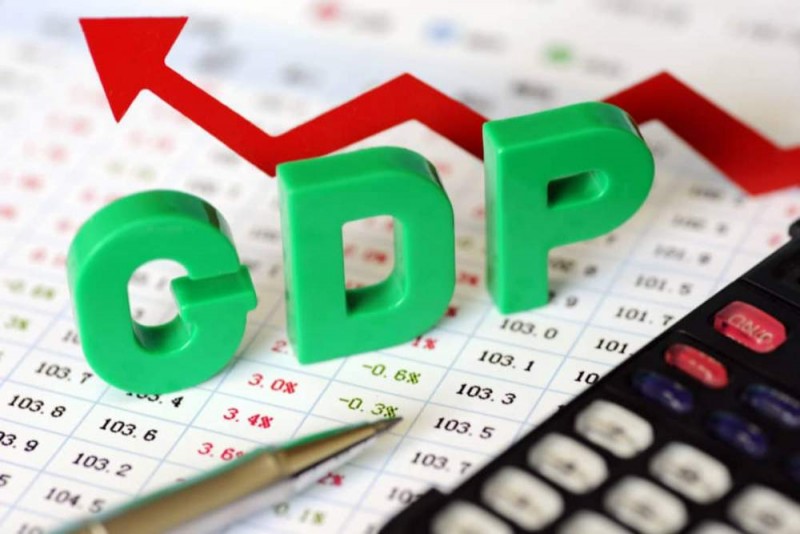9 Months Remain: Vietnam Aiming for a 6.75% Growth Rate
Q1/2024 GDP
Despite showing positive signs, Vietnam’s economic growth of 5.66% compared to the previous year is still an uphill battle to achieve the target growth of 6.5%, according to economic experts.
As per the General Statistics Office, to attain the 6.5% growth target in 2024, Vietnam’s GDP growth in the remaining 9 months must reach 6.75%. Specifically, Q2/2024 is projected to grow around 6.32%, Q3/2024 sekitar 6.79%, and Q4/2024 sekitar 7.08%.

Trịnh Minh Anh, Head of the International Economic Integration Inter-Sectoral Steering Committee (Ministry of Industry and Trade), emphasized the challenges facing Vietnam’s economic growth. The global and regional economies have faced, and will likely continue to face, difficulties and challenges due to unresolved issues affecting economic growth.
Geopolitical conflicts, food security, energy security, climate change, inflation, currency, and public debt are global issues impacting Vietnam’s economy. In this context, Vietnam should effectively implement Free Trade Agreements (FTAs) to leverage growth opportunities.
Vietnam has signed 16 FTAs, 15 of which are in effect. The implementation of these FTAs has provided significant opportunities for Vietnam in expanding markets, boosting trade, increasing exports and imports, and attracting investment. It has contributed to maintaining Vietnam’s high economic growth rate of 6-7% annually, stabilizing the macroeconomy, controlling inflation, and ensuring major balances.
However, in 2024, the GDP growth of the region and the world is forecasted to face numerous risks and unpredictable fluctuations, presenting both opportunities and challenges. Achieving the 6.5% growth target set by the National Assembly will not be straightforward, especially in the context of increasing market demands for consumer safety, sustainable development, and combating climate change. Protectionism is on the rise, with many countries implementing measures to bring investments back home and erecting trade barriers to protect and boost domestic production.
The transition to green manufacturing is no longer an option but an imperative, a market demand. Aside from price, product quality, and delivery time, green and sustainable practices are competitive factors that major markets like the US, EU, and Japan require from suppliers. Vietnamese exporters must address the “green” challenge in their production processes, meeting various criteria for waste treatment, energy-efficient production, and waste recycling solutions.
Trade, import-export, and investment activities in 2024 present ample opportunities for recovery and growth as inventory issues in many countries are gradually being resolved. Vietnam’s efforts in promoting negotiations and diversifying its export and import markets will provide a competitive advantage for its exports in the years to come.

Opportunities from Effective FTA Implementation
According to Trịnh Minh Anh, the effective implementation of FTAs will provide Vietnam with significant opportunities to achieve its growth targets. To enhance the effectiveness of FTA implementation, the Inter-Sectoral Steering Committee for International Economic Integration and relevant ministries have consulted with businesses, industry associations, and reported to the Government policy recommendations to improve FTA implementation. This aims to enhance the adaptability of businesses, industries, and products in the international economic integration process.
However, to maximize FTA utilization, it is crucial for Vietnam to完善 laws and regulations to ensure consistency, coordination, fairness, transparency, non-discrimination, and adherence to procedures. This will minimize disputes with foreign investors and effectively resolve any emerging conflicts.
Concurrently, the country needs to develop and refine early warning mechanisms to prevent disputes. Furthermore, synchronized coordination among all levels of government, localities, and businesses is essential. Regular monitoring and supervision of the implementation of existing FTAs should be conducted to leverage domestic strengths, foster close ties, advance institutional development, improve human resource quality, modernize infrastructure, enhance comprehensive strength, and boost competitiveness.
Trịnh Minh Anh believes that to effectively implement and seize the opportunities presented by FTAs, Vietnam must adopt a well-defined strategy, embrace a positive and proactive mindset, and drive bold innovation in both thinking and action.












